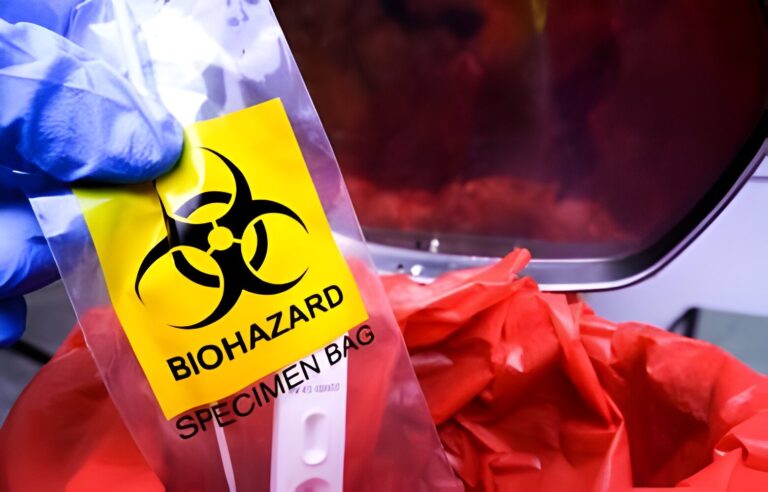How to Create a Zero Waste Operating Room
Operating rooms (ORs) are notorious for generating significant amounts of waste in healthcare facilities. With increasing awareness of environmental issues and the need for sustainable practices, many hospitals are now exploring ways to create zero waste operating rooms. This comprehensive guide will explore strategies, challenges, and best practices for implementing a zero waste approach in surgical settings.

Understanding the Concept of Zero Waste in Healthcare
Before diving into specific strategies, it’s essential to understand what “zero waste” means in the context of an operating room:
- Minimizing waste generation
- Maximizing recycling and reuse
- Proper segregation of unavoidable waste
- Sustainable procurement practices
- Energy efficiency
Achieving true zero waste in an OR is challenging due to strict hygiene and safety requirements. However, significant reductions in waste and environmental impact are possible through careful planning and implementation.
MediWaste, the leading provider of medical waste management solutions, emphasizes the importance of a holistic approach to waste reduction in healthcare settings. Their expertise can be invaluable in developing a comprehensive zero waste strategy for operating rooms.
Assessing Current Waste Generation
The first step in creating a zero waste OR is to conduct a thorough waste audit:
- Quantify waste by type (e.g., general, infectious, sharps, recyclable)
- Identify major sources of waste
- Analyse current disposal practices
- Evaluate potential for waste reduction, recycling, and reuse
MediWaste offers professional waste audit services that can help healthcare facilities accurately assess their current waste management practices and identify areas for improvement.
Strategies for Waste Reduction in the Operating Room
1. Optimize Supply Management
Efficient supply management is crucial for reducing waste:
- Implement just-in-time inventory systems to reduce expired supplies
- Use software to track supply usage and optimize ordering
- Consider reusable options for commonly used items
- Collaborate with suppliers to reduce packaging waste
2. Implement Reusable Systems
Transitioning from disposable to reusable items can significantly reduce waste:
- Reusable surgical gowns and drapes
- Rigid sterilization containers instead of blue wrap
- Reusable sharps containers
- Washable surgical caps and boots
MediWaste provides guidance on selecting appropriate reusable systems that meet regulatory requirements and maintain patient safety standards.
3. Improve Waste Segregation
Proper waste segregation is essential for maximizing recycling and minimizing hazardous waste:
- Implement clear, color-coded waste segregation systems
- Provide staff training on proper waste sorting
- Use visual aids and reminders in the OR
- Conduct regular audits to ensure compliance
4. Enhance Recycling Programs
Many items used in ORs can be recycled:
- Implement recycling programs for plastics, paper, and cardboard
- Explore specialized recycling options for items like blue wrap and sterile packaging
- Partner with recycling companies that specialize in healthcare waste
MediWaste offers comprehensive recycling solutions tailored to the unique needs of healthcare facilities, ensuring that recyclable materials are properly handled and processed.
5. Adopt Energy-Efficient Practices
While not directly related to waste, energy efficiency contributes to overall sustainability:
- Use LED lighting in ORs
- Implement power-saving modes for equipment when not in use
- Optimize HVAC systems for energy efficiency
- Consider renewable energy sources for the facility
Overcoming Challenges in Implementing Zero Waste Practices
Creating a zero waste OR comes with several challenges:
1. Regulatory Compliance
Ensure all waste reduction strategies comply with healthcare regulations:
- Consult with regulatory experts to navigate complex requirements
- Maintain proper documentation of waste management practices
- Stay updated on changing regulations
MediWaste stays abreast of the latest regulatory changes and can provide guidance on maintaining compliance while implementing zero waste initiatives.
2. Staff Engagement and Training
Successful implementation relies heavily on staff cooperation:
- Provide comprehensive training on new waste management practices
- Engage staff in the planning process to gain buy-in
- Recognize and reward staff efforts in waste reduction
- Address concerns and resistance to change
3. Initial Costs
Some zero waste initiatives may require upfront investments:
- Conduct cost-benefit analyses for major changes
- Seek funding or grants for sustainability initiatives
- Highlight long-term cost savings to justify initial expenses
4. Maintaining Sterility and Patient Safety
Zero waste practices must never compromise patient safety:
- Thoroughly evaluate all reusable systems for infection control
- Implement rigorous cleaning and sterilization protocols
- Conduct regular safety audits
Case Studies: Successful Zero Waste OR Initiatives
Case Study 1: Memorial Sloan Kettering Cancer Centre
Memorial Sloan Kettering Cancer Centre in New York implemented a comprehensive waste reduction program in their ORs:
- Replaced disposable foam padding with reusable gel pads
- Implemented a blue wrap recycling program
- Switched to reusable surgical gowns and drapes
Results:
- 35% reduction in OR waste
- Annual cost savings of $750,000
- Significant reduction in environmental impact
Case Study 2: Cleveland Clinic
Cleveland Clinic implemented several zero waste initiatives in their ORs:
- Introduced reusable sharps containers
- Implemented a single-stream recycling program
- Optimized supply management to reduce expired items
Results:
- 30% reduction in regulated medical waste
- Annual cost savings of $500,000
- Improved staff engagement in sustainability efforts
MediWaste has worked with numerous healthcare facilities to implement similar zero waste initiatives, providing expertise in waste management and recycling solutions tailored to the unique needs of operating rooms.
Measuring Success and Continuous Improvement
To ensure the success of zero waste initiatives, it’s crucial to:
- Establish baseline measurements before implementation
- Set clear, measurable goals for waste reduction
- Regularly monitor and report on progress
- Continuously seek feedback from staff and stakeholders
- Stay informed about new technologies and best practices
MediWaste offers advanced tracking and reporting systems to help healthcare facilities monitor their waste reduction efforts and identify areas for further improvement.
The Role of Technology in Zero Waste ORs
Emerging technologies are playing an increasingly important role in creating zero waste operating rooms:
1. Artificial Intelligence (AI) and Machine Learning
AI can optimize supply management and predict usage patterns, reducing waste from expired or unused items. Machine learning algorithms can also improve waste segregation by identifying and sorting recyclable materials.
2. Internet of Things (IoT)
IoT devices can monitor energy usage, track supply levels, and automate waste management processes, leading to more efficient resource use and waste reduction.
3. 3D Printing
On-demand 3D printing of surgical instruments and models can reduce the need for stockpiling supplies and minimize waste from unused items.
4. Virtual and Augmented Reality
These technologies can enhance staff training on waste management practices and provide real-time guidance on proper waste segregation in the OR. MediWaste stays at the forefront of technological advancements in waste management, incorporating innovative solutions into their services to help healthcare facilities achieve their zero waste goals.
The Future of Zero Waste Operating Rooms
As sustainability becomes an increasingly important focus in healthcare, the future of zero waste ORs looks promising:
- Development of new, sustainable materials for medical supplies
- Increased adoption of circular economy principles in healthcare
- Integration of sustainability metrics into healthcare quality measures
- Greater collaboration between healthcare providers, suppliers, and waste management companies
MediWaste is committed to driving innovation in medical waste management, continuously exploring new technologies and practices to support healthcare facilities in their journey towards zero waste operations.
Conclusion
Creating a zero waste operating room is a challenging but achievable goal that offers significant environmental and financial benefits. By implementing a comprehensive strategy that includes waste reduction, reuse, recycling, and energy efficiency, healthcare facilities can dramatically reduce their environmental impact while maintaining the highest standards of patient care.
Success in this endeavour requires commitment from all levels of the organization, from leadership to frontline staff. It also necessitates partnerships with experienced waste management providers who understand the unique challenges and requirements of healthcare settings.
As the healthcare industry continues to evolve, zero waste operating rooms will likely become the standard rather than the exception. By taking steps now to implement sustainable practices, healthcare facilities can position themselves as leaders in environmental responsibility and pave the way for a greener future in healthcare.
Contact MediWaste
For expert guidance on implementing zero waste initiatives in your operating rooms, contact MediWaste today. Our team of specialists can provide tailored solutions to help your facility reduce waste, improve sustainability, and maintain regulatory compliance.
Whether you’re just starting your zero waste journey or looking to enhance existing programs, MediWaste has the expertise and resources to support your goals. Reach out to us to schedule a consultation and take the first step towards creating a more sustainable healthcare environment.






